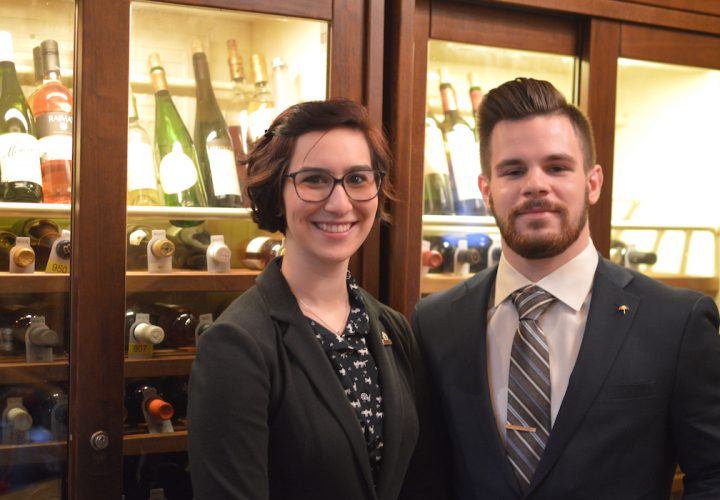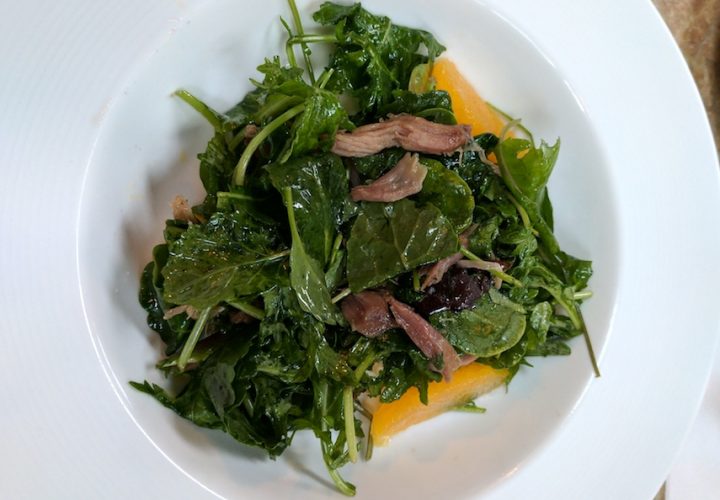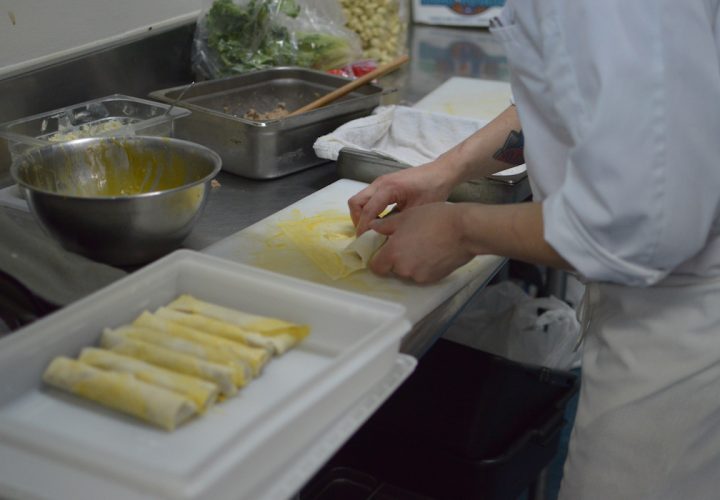Teamwork
By Kady Fox, Steve Benton, and Lisa Atkinson
Working as a team is something that we practice at Walnut Hill College on a daily basis. Although teamwork is not often talked about, every student contributes to the flow of service. Teamwork benefits us greatly while we work together in the classrooms, and it helps us even more in our production and operation classes. Together, we all work through a system to accomplish an overall goal.
Teamwork at this College has a large role in all classroom settings. For pastry students, production in the morning requires the students to work together to produce all products for the Pastry Shop as well as desserts for dinner service later that evening. One specific example of teamwork shown by pastry students would be the production of bread. Individual students are required to communicate and interact during each step of mixing, shaping, proofing, and baking to produce the final product.
Our culinary students fulfill three different types of production-based classes. The first of these is morning production. In this classroom, students prepare food for morning service in the Pastry Shop and are required to fulfill guests’ needs upon request. The students communicate with one another in terms of replenishing and restocking items in the Pastry Shop. Students are also required to help prep food for lunch production, which follows shortly after. Lunch production necessitates multiple tasks in the kitchen. Students are not only producing food for the public but are also given the opportunity to create dishes for prospective students during luncheons for visiting high schools.
Dinner service requires teamwork from both front-of-the-house and back-of-the-house students. Our College has four different restaurants, which are open to the public. Dinner production takes place in two of our six kitchens, which means that the production of food can come out of either kitchen. Communication is ideal during dinner service, because both management and culinary students need to work together for the flow of the service to be successful. Culinary students prep and cook and also have to learn all of the menus being served. The culinary students are required to have one front-of-the-house class to understand the importance of service and the relationship between management and the culinary and pastry side of restaurant operations.
During dinner service, teamwork among management students takes on a huge role. Each student is designated a spot throughout service, which requires them individually to fulfill their tasks. Management relies on the culinary students to produce and turn out dishes in a timely manner upon request from the front-of-the-house. But for this to happen, communication is key. Allergies, dietary restrictions, and special occasions are all standard information that both front-of-the-house and back-of-the-house should be aware of before dinner service begins. Also, if there should be any mistakes, complaints, or incidents, everyone should be aware of the situation and be ready to correct everything to make the guest satisfied to the best of our ability.
At our College, we have multiple departments that contribute to the daily success of production as well as service. Pastry and culinary combined help transition from morning to lunch production, maintaining guest satisfaction during the process. From lunch to dinner service, management and culinary students focus on communication and teamwork to help run restaurants that are open to the public. In a full day’s worth of classes, each student gains the skills to communicate and work with their fellow students, which, as a result, helps them to hone their teamwork tactics and contribute to the success of the College as a whole.
Kady Fox, Student Leader
Hotel Management, Class of July 2017
Steve Benton, Student Leader
Restaurant Management, Class of July 2018



